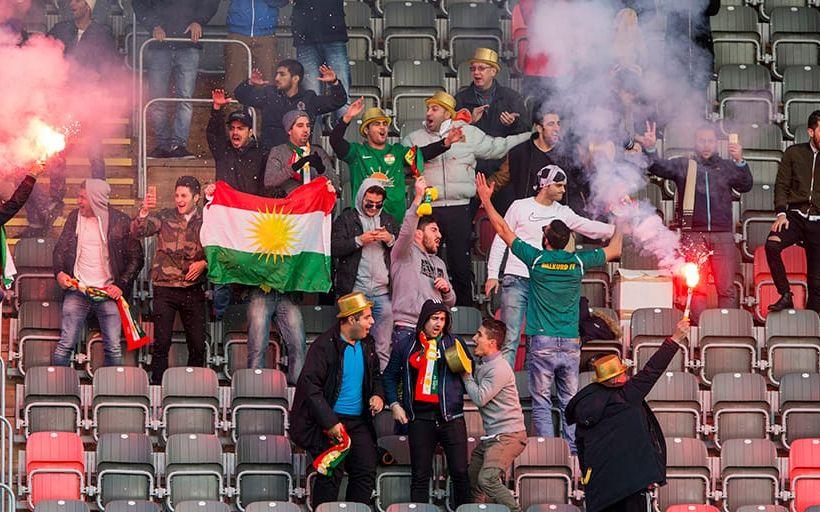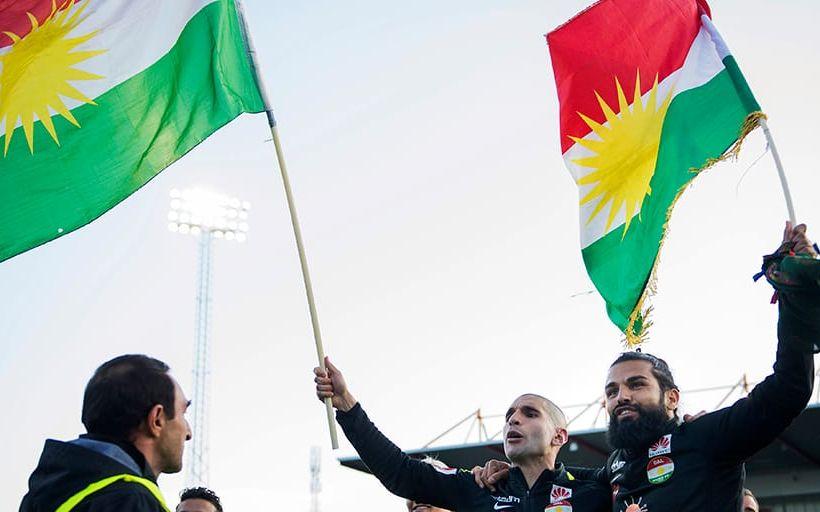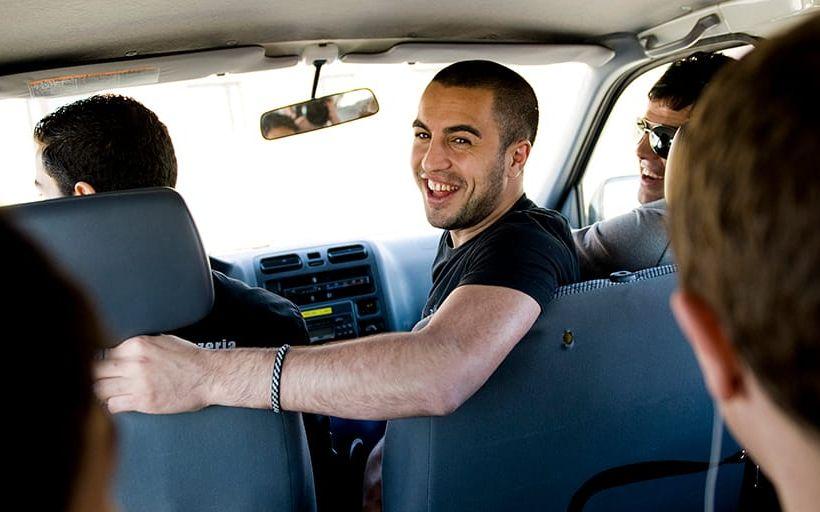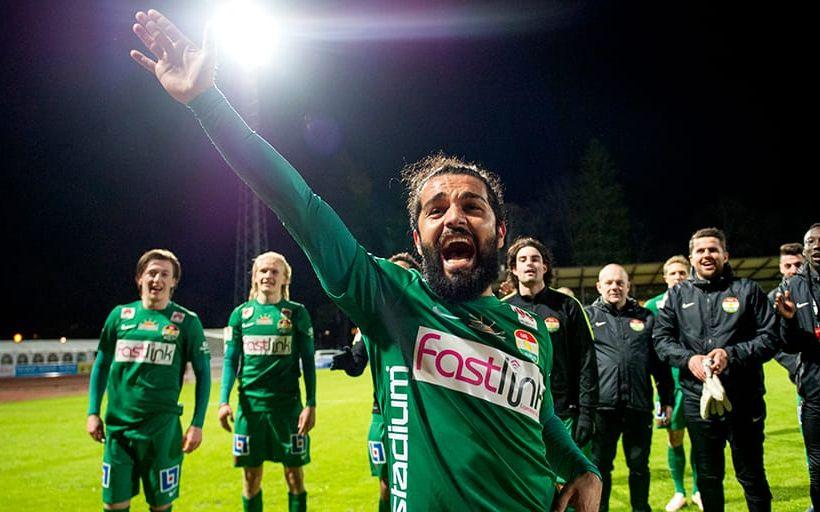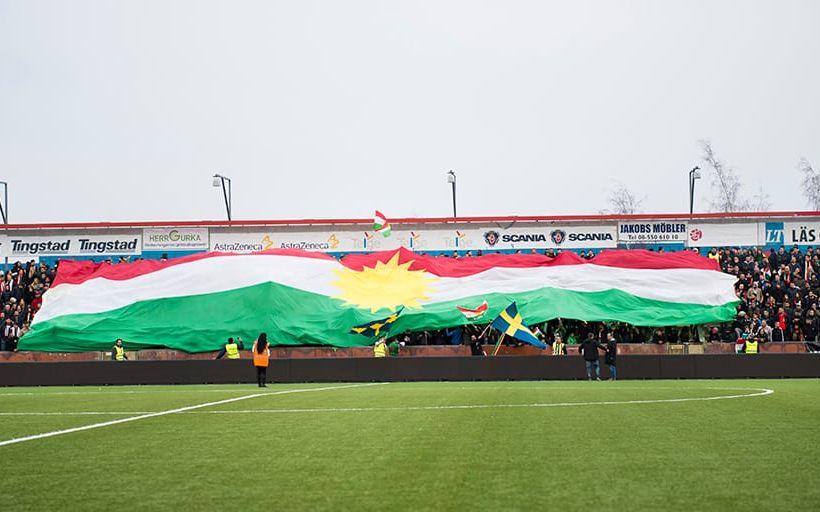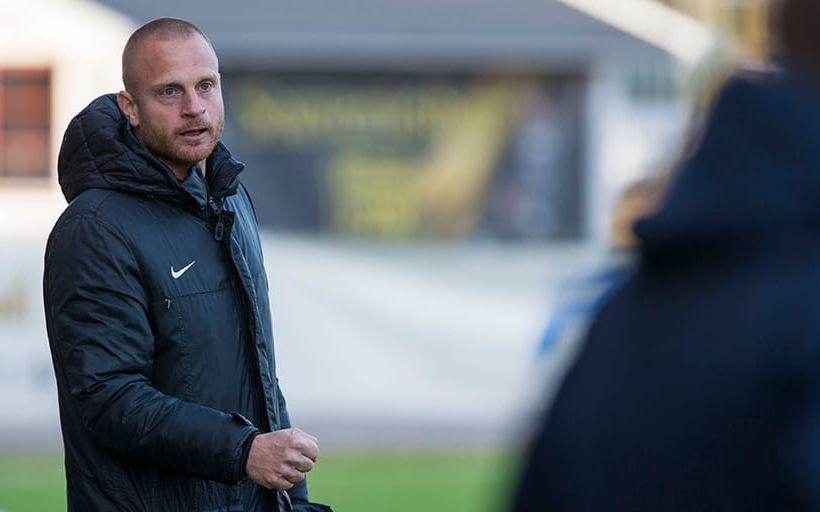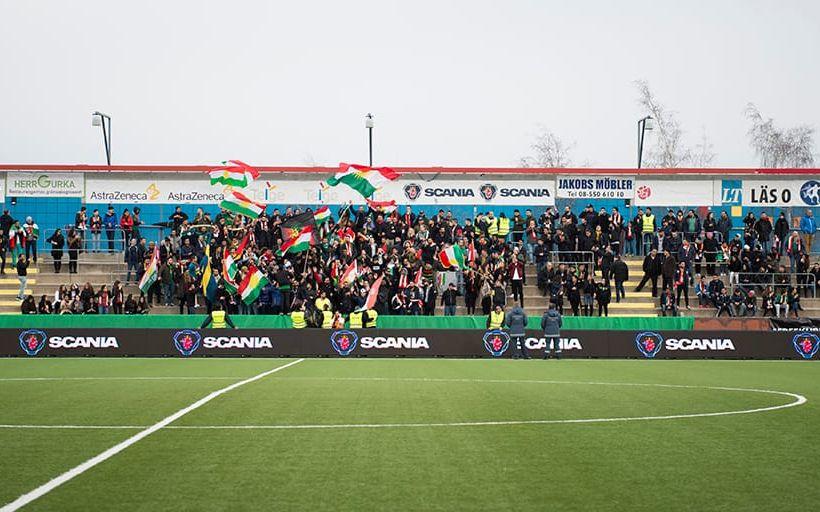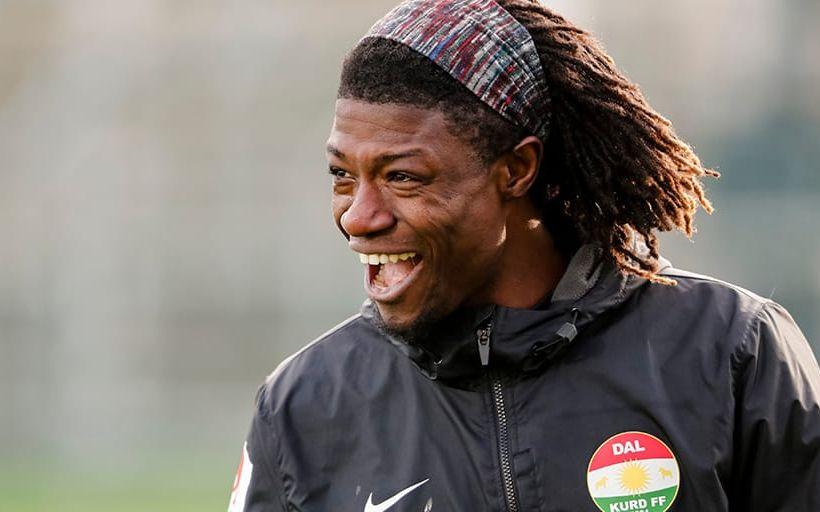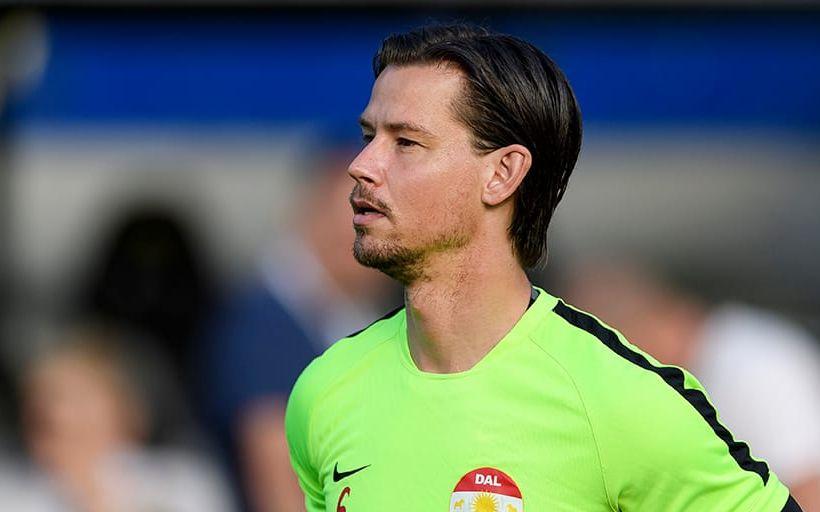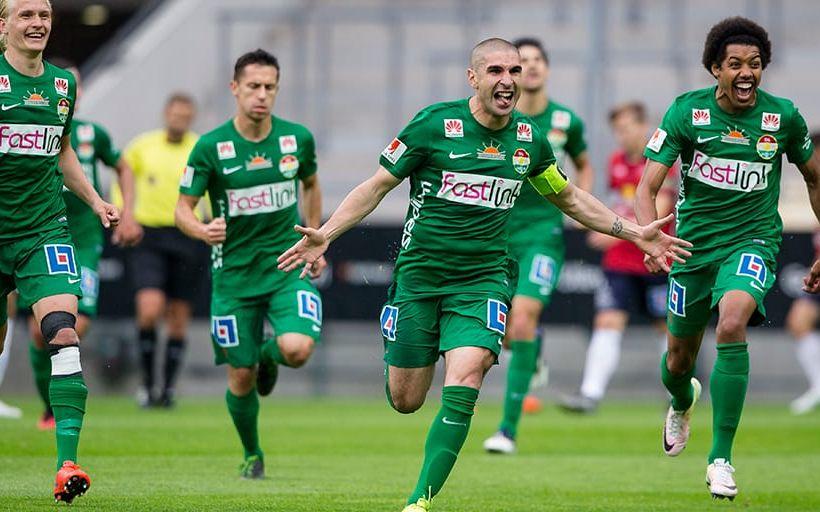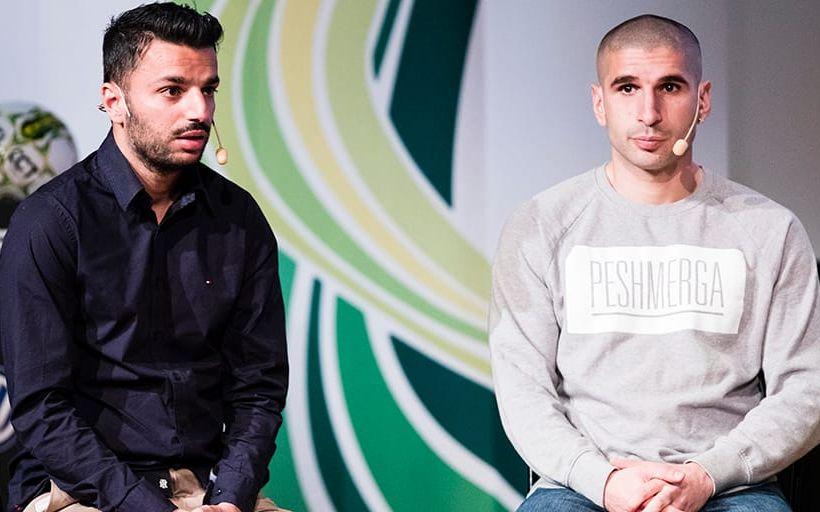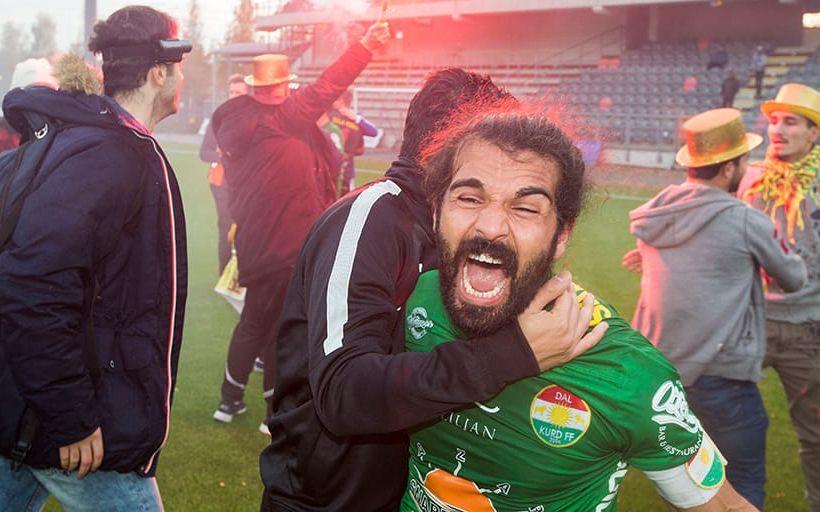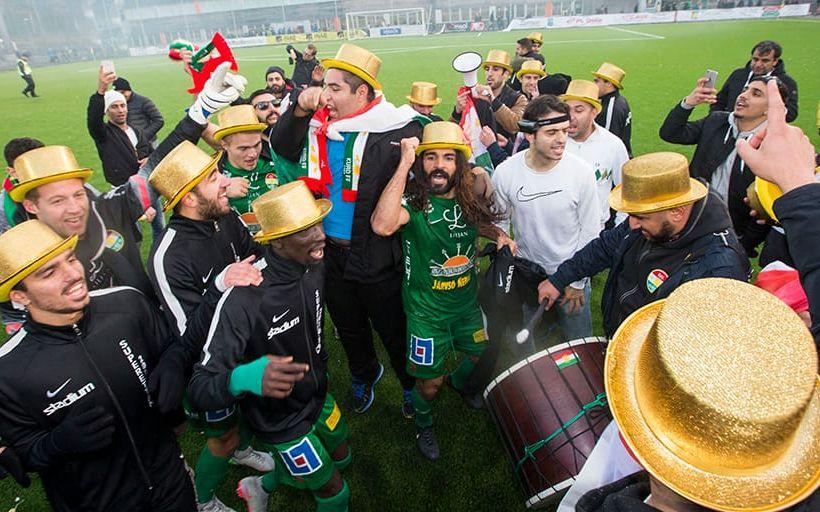In the Swedish province of Dalarna, where Gustav Vasa took the first step towards Swedish independence as he revolted against the Danish king in the 16th century, a people without a state of their own is repeating history. The football club Dalkurd, founded by nine Kurdish migrants in 2004, has made an impressive journey from the lowest tier to the Superettan, the second tier of Swedish football. In October 2015 promotion the third tier was secured – with Kurdish flags waving in the stands.
The Gustav Vasa of Dalkurd is Ramazan Kizil. He is not beheading any Danish knights, but as one of the founders as well as the current chairman he has played an important role of the fairy tale of Dalkurd. He still remembers the exact date he came to Sweden. The 26th November 1989.
”My body is in Sweden, but my thoughts and dreams are still in my home country, because I didn't leave by free will. My people are still there and they are in trouble. You can't just turn your back on them, it´s very personal.”
15 years from his arrival, Dalkurd was founded.
“It all started as a social project rather than a football club.”, he remembers. ”We talked about us moving here and living decent lives. We were safe and we could sleep without fear. Before coming to Sweden, we didn´t know the feeling of a night's sleep without fear. You could be arrested, shot or tortured any given minute. We thought: What can we, as Kurds, human beings and parents do for the society that has given us so incredibly much?”
In the end of 2004, a group of young players were kicked out of the biggest club in Borlänge – IK Brage. The reason was, according to Ramazan Kizil, disciplinary issues. That became the spark that set fire to the thought of forming a football club.
”We thought: Now it's the time to do something that matters. We wanted to use football to take care of the youths.”
Said and done, in October that year Dalkurd were up and running. The first squad, competing in the lowest tier of Swedish football, was more or less the players that had been left out of Brage´s system.
”We started with them.”, Ramazan Kizil says. “We wanted to show our support and our faith in them. When you show you care about them they listen. Our principle is that all the people of the club, from a six-year-old player to the chairman should have a dialog and care about each other. We are creating a family.”
Players in the Division 6 of Sweden normally train one or two times a week. Dalkurd more than tripled that, scheduling at least two hours of training seven days a week.
The same group of young players, spiced with a couple of experienced ones from higher levels, ran through division after division. In five years Dalkurd was promoted to Division 1, the third tier in Sweden, winning five consecutive promotions. The club was still run by a small group of people and the facilities outside of the pitch didn't match the success on it. Even today, a container and a garage is used as the official club centre.
***
Peshraw Azizi is the son of a Peshmerga soldier who fought for Kurdish independence. Azizi came to Sweden as a 12-year old and soon after arriving he started playing football in Syrianska, a club in the city of Södertälje. He has been a part of Dalkurd for six years and has been elected captain. Azizi sees Dalkurd´s existence as a token off something valuable.
”To have the Kurdish flag on your chest, it became more and more like a national team. When I first came here the club wasn't as big as it is today. We have fought together to make it grow.”
And the club has most certainly grown since its´ foundation. In the opening game of last season, 5550 people saw Dalkurd play against Assyriska. The flags of the team and their country were once again waving in the stands.
This season Dalkurd is the favourite for promotion. In a preseason meeting, players, coaches and journalists around Superettan were asked who they fought would win the league. 65,5 percent answered Dalkurd. And with signings such as Mohamed Bangura, ex Celtic and İstanbul Başakşehir player, and Kebba Ceesay, eleven caps for Gambia, the club should be.
But still there is a core of if not home-grown, at least home-loving, players.
”We aren't finished here. Each time you see more Kurdish flags you want to achieve more.”, Peshraw Azizi says. ”We have proved that everything is possible. To fight for the Kurdish flag is a simple choice for me, since my family has been fighting for the Kurds all their lives. My father fought for a long time in the war, and now I'm continuing his fight, this time through football and not in war. For me, this is an equally important fight for the Kurdish issue.”
Peshraw Azizi has authority in the matter. He is one of three players in this year's squad with Kurdish descent. In the past years he has been travelling to his home country a number of times. The purpose being helping his fellow countrymen with football as a cure against poverty and war, setting up summer camps and training teams.
Although the club only had 1 119 people in average attendance last year, Dalkurd´s support in Kurdistan is huge. Peshraw Azizi remembers one time when he travelled to the war front, where the battles between the Kurdish Peshmerga and Isis raged. He entered a military camp close to Mosul in Iraq, when all of a sudden one of the soldiers started talking to him.
”He recognised me and asked ”What are you doing here?”, I was shocked. Do I know him? Is he a friend of my dads´?”, Peshraw Azizi remembers.: ”What are you doing here, Pasha? I´ve been following you for three years. You play for our team and you are the best football player. You shouldn't be here. Go home and make us happy through football”.
”Then I realized that people there love and follows us. Today, people in Kurdistan have Real Madrid, Barcelona or Dalkurd as their favourite teams. I have people to run and fight for on the pitch, which gives me energy in every game. I want to make even better results thanks to them.”
Peshraw Azizi has been dedicated in providing aid for the Kurdish people. And according to him, that has helped raise the team's popularity in Kurdistan.
”The trips have been a part of making this team their club. To hear these words from them, like the story with the soldier who recognized me, it makes you stronger. Everyone is speaking about us there.”
***
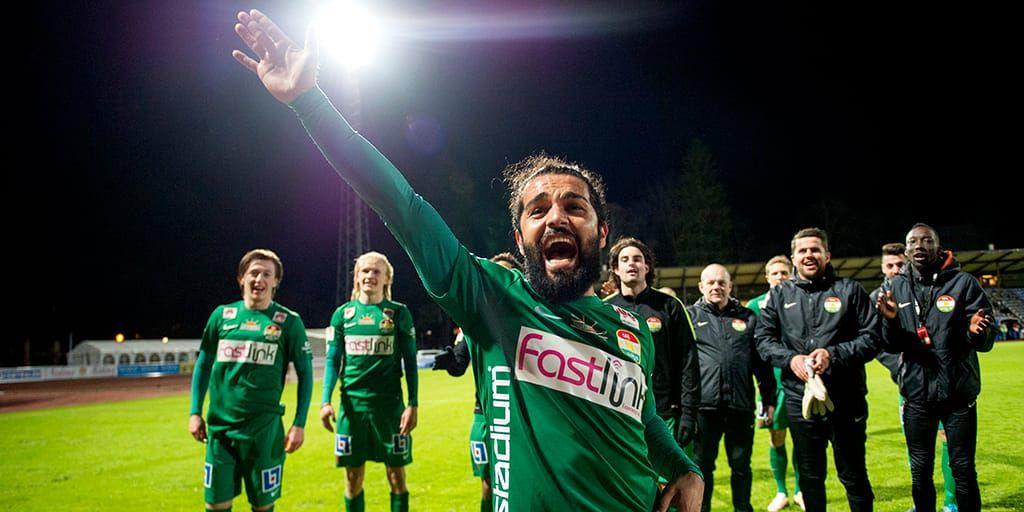
In 2015, 162 877 people applied for asylum in Sweden. The migration issue is, according to recent studies by the SOM-institute at the university of Gothenburg, the most important political question for the majority of Swedish voters. With that in mind Dalkurd, as a social project as well as a football club, is even more interesting. The Swedish system of sports associations run by non-paid human dynamos has proved to play an important role in integrating new inhabitants. All over the country, teams for immigrants have started to flourish. Dalkurd sees their success as a way to prove that integration is not a mission impossible.
”Dialog is the best way to integrate. You should try to understand each other. When I founded Dalkurd I couldn't speak Swedish especially good.”, says Ramazan Kizil, now more or less fluent in the language. ”Through football you can integrate immigrants in the society, we have experience of that. We struggled to get Swedes as coaches and board members at first, but now half of our board are Swedes.”
When it came to the squad, 14 different nationalities could be counted a couple of years back. As the captain of the team, Peshraw Azizi firmly believes football can be a tool of integration.
“Football doesn't have a language. When you are out there on the pitch, you don't need Swedish to pass or shoot. The words you need, you learn in a minute.”
***
In February last year, two Kurdish brothers bought 49 percent of the club. Swedish media called it a multi billionaire sponsorship deal. Sarkat Junad and Kawad Junad are entrepreneurs from Kurdistan, active in the telecom and media business, and they have high expectations on the club they are now a part of.
”Me and my brother have been following Dalkurd the last couple of years and think it is an amazing club. We are hoping that Dalkurd can become a bridge between Sweden and Kurdistan.”, Sarkat Junad told the local newspaper Dalarnas Tidningar when the takeover was announced.
The new investors see a bright future for the club. Apart from building two academies in Kurdistan and one in Borlänge, they want the club to make their way to the very top of European football.
”I would love to see Dalkurd in the Champions League. In general you could say that half of the Kurds with football interest is a Barcelona supporter and the other half supports Real Madrid. Our goal is that 70 percent should have Dalkurd as their first team.”, Sarkat Junad told Dalarnas Tidningar. ”If we can help with the funding, the club will become even better and advance faster.”
The money came in the nick of time. Last year there were several reports on Dalkurd struggling to pay taxes. Despite the fact that their Facebook page has more than 1.5 million likes, the club is still one of the smallest in the Swedish Superettan in economical terms. But they are planning to grow.
”They got rid of almost 40 percent of our expenses. But they aren't just handing over a bag of money. We have a thought, planning and goals with everything we do.”, Ramazan Kizil says about the takeover. “But it´s not the first team that is their main goal. They want to exchange knowledge, since there are no club activities in the Middle East. We will therefore teach them our system.”
With the help of the Kurdish sponsors this transfer window, the club could compete with Allsvenskan sides for signings of high quality. In just a couple of years the club has grown from being an outsider in the football family of Sweden to a potential major power, settling for nothing but the top. Already Östersunds FK, with the Englishman Graham Potter as a Guardiolaesq-manager, has proven that you could compete with established clubs in Allsvenskan as a minor challenger. ÖFK finished eight in their first ever season in Allsvenskan and won the Swedish cup this year.
But Dalkurd is, unlike ÖFK, fighting on several fronts. Not only the team will have to compete for a place in the top three in Superettan to achieve promotion, the whole club might need to repeat what Ramazan Kizil did in 1989 - find a new home. Disappointed with the lack of political interest and investment in a new stadium, Dalkurd have threatened to move the entire club.
“They force us to do this”, Ramazan Kizil told Dalarnas Tidningar. “We will look for other municipalities, which are suited for us and can give us the opportunity to play our games.”
The pure existence of the club is a political message in itself. It´s success comes in a time when the country they represent – which according to the Atlas doesn´t exist – is about to vote for independence. The Kurdish region of Iraq will have a refenderum for independence in September. Turkey – and several other nations – will follow the chain of events with worry.
The future of Dalkurd seems more certain. Regardless if they play in Borlänge, Uppsala or Stockholm, their fight will continue to be bigger than eleven young men chasing a ball.
”Everything you do with our name is politics. It creates dialog and enthusiasm for the people that have sacrificed their lives for this name.”, Ramazan Kizil says.
The dreams and goals of modern football clubs is often associated with glory and success in the Champions League, improving an already huge revenue and buying star players with unimaginable salaries. Dalkurd is aiming for something completely different.
“When we started the club, we had short term goals and long term goals. The long term goal was more like a dream: to face a Turkish team with our Kurdish colours and show them that the sky won't fall down just because we have Kurdish names.”, Ramazan Kizil says with emphasis. “It would be the largest news story of the world. How could the Turks let us play Fenerbache or Galatasaray with our name and our flag? As long as I haven't experienced that, I won't give up.”
Dalkurd FF
Founded: 2004, in Borlänge, Sweden.
Chairman: Ramazan Kizil
Manager: Andreas Brännström
Division: Superettan
Key players: Rawez Lawan, Mohamed Bangura, Robin Tranberg
Kurds in Sweden
The first documented Kurd in Sweden was the doctor Mirza Seid, in 1893.
Between 60 000 and 85 000 Kurds live in Sweden today.
The stand up comedians Soran Ismail and Özz Nûjen, Jiloan Hamad, playing for Hammarby and the pop artist Darin Zanyar is famous Kurds from Sweden.
